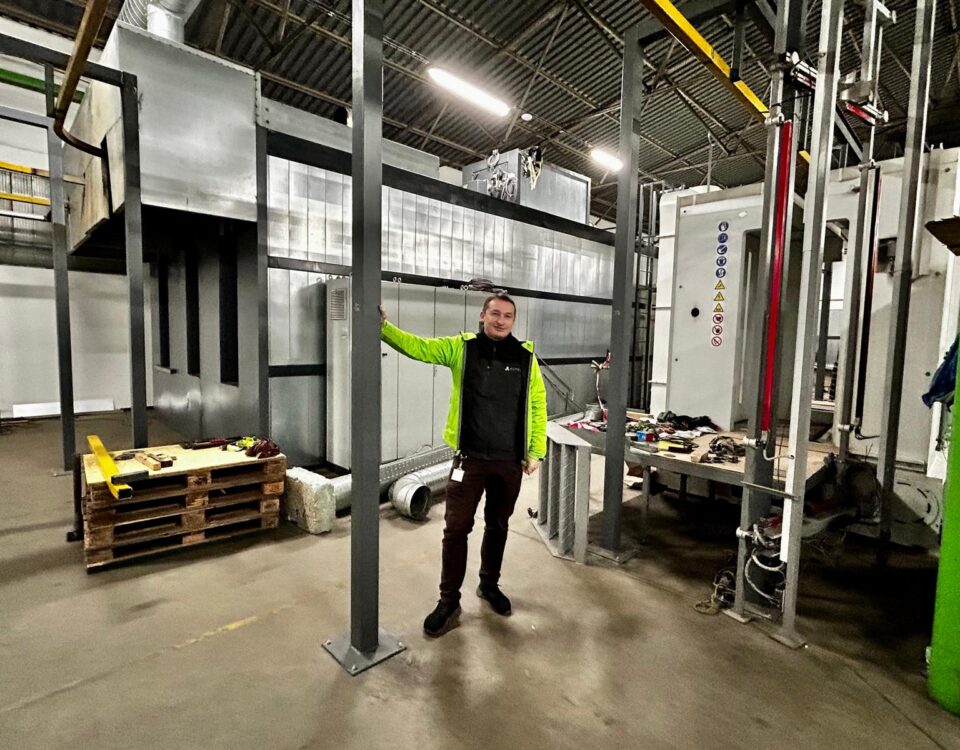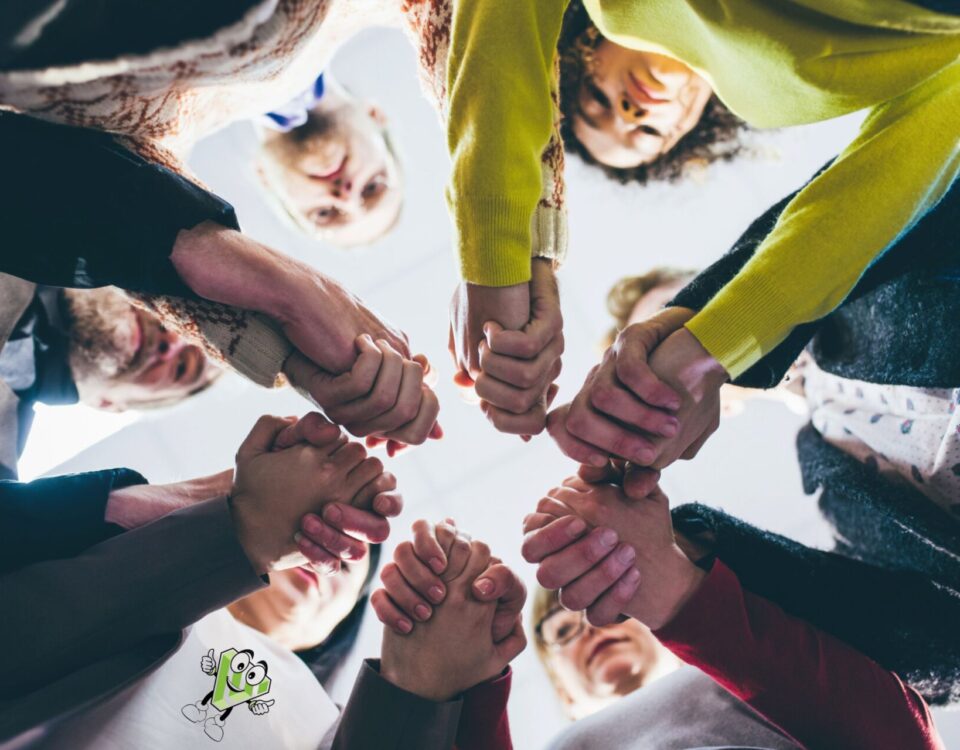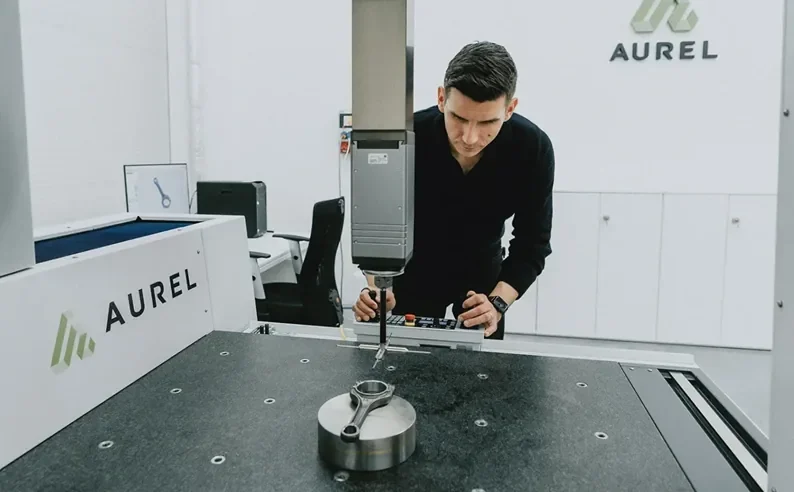In March, the owners of Colegium Holding embarked on a business trip to the United States as part of a Czech trade mission led by Transport Minister Martin Kupka. The three-state tour proved to be a valuable opportunity, bringing new insights and potential business prospects.
Negotiations Begin in the Air
The official delegation comprised approximately fifty Czech business leaders, representatives of state administration, and university officials. The itinerary was intensive right from the start, with the delegation departing from Kbely Airport early in the morning.
During the flight to Atlanta, numerous discussions took place, including a meeting with Minister Kupka, where we introduced Colegium Holding and our key companies – AUREL and APP. We discussed the status of government support, particularly regarding the development of our Břehynia test polygon and the somewhat illogical regulations surrounding subsidies for research and development investments.
Minister Kupka and his team expressed interest in supporting the further development of the polygon and other related projects. Additionally, the Minister showed keen interest in the production activities of APP and indicated a desire to visit the manufacturing facility in Nymburk.
Georgia – A Hotspot for Investment
Our first stop in the U.S. was Atlanta, a city with a growing focus on technological advancement in the automotive sector, particularly in autonomous mobility.
We visited two companies specializing in autonomous vehicle development, as well as the Georgia Institute of Technology. It was striking to observe how these companies concentrate almost exclusively on autonomous mobility. Traditional vehicle testing is considered complete, and further development is primarily focused on autonomous systems.
During our visit, we also met with the city’s mayor and a key banking executive supporting innovation initiatives. Their enthusiasm for attracting foreign investment was palpable, emphasizing the region’s commitment to fostering development.
Later, we met with representatives from the City of Atlanta and Georgia Tech, where we discovered a robust infrastructure aimed at attracting companies of all sizes, from startups to multinational corporations. For Colegium Holding, Georgia emerged as a particularly promising location for potential investments and expansion.
rozvoje firem z Colegia Holdingu v USA vidím oblast Georgie jako asi nejperspektivnější.

California – Where Development Takes Priority
After a six-hour flight, our next destination was San Francisco, where we spent three days visiting companies focused on autonomous mobility.
At Nuro, a company specializing in last-mile autonomous delivery vehicles, we discussed regulatory challenges. Interestingly, we learned that when companies encounter legislative barriers during development, they work directly with the California government to resolve them. This open, problem-solving approach was both refreshing and inspiring.
We also toured Silicon Valley and a startup incubator specializing in connecting developers with end clients. The incubator functions as a bridge, gathering client needs and identifying the best-suited startups to address them. This collaborative model has produced several unicorns, including PayPal.
One of the most anticipated visits was to a testing proving ground, housed in a former naval base. The site is vast, offering a wide array of testing scenarios. Two notable takeaways:
The facility primarily conducts autonomous mobility tests, as this is the primary demand. Currently, they are developing an autonomous vehicle to transport patients to hospitals under a state contract.
The state’s support for development is substantial. The entire naval base was provided for free, underscoring California’s commitment to promoting innovation. Even Minister Kupka was impressed by this level of support.

Detroit – Strengthening Partnerships with Shape
Our final stop was Detroit, once the epicenter of the American automotive industry. Here, we diverged from the main delegation to meet with key clients at Shape, one of APP’s largest customers.
We met with CEO Mark White and CTO Ed Pleed to discuss expanding our collaboration in manufacturing, particularly in welding and the supply of complete bumper reinforcement components.
We also proposed leveraging AUREL’s expertise in development, offering comprehensive services including simulations, prototype production, and strain gauging. Additionally, discussions included the potential construction of a new plant in Western Bohemia and the conditions required to make it viable.
Our talks concluded on a promising note, with Shape’s European management expressing interest in expanding cooperation and exploring opportunities to enter the U.S. market – a step we now consider increasingly feasible.
Embrace Mistakes – A Key Takeaway
Reflecting on the entire trip, one standout impression was the American drive for results. Everyone we met – from developers and municipal representatives to university staff and bankers – was intensely focused on tangible outcomes. Effort was acknowledged, but results were what truly mattered.
A key takeaway: Americans don’t shy away from making mistakes. They view setbacks as a natural part of the innovation process, an integral step toward success. Rather than fear failure, they embrace it as a learning experience.
This mentality is worth adopting. If we’re afraid to make mistakes, we risk stagnation. But if we view errors as part of a meaningful journey that propels us forward, then they are not only acceptable – they are essential.
Petr Šimák



